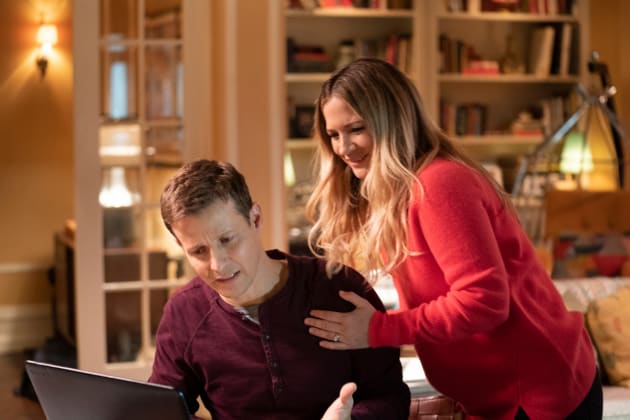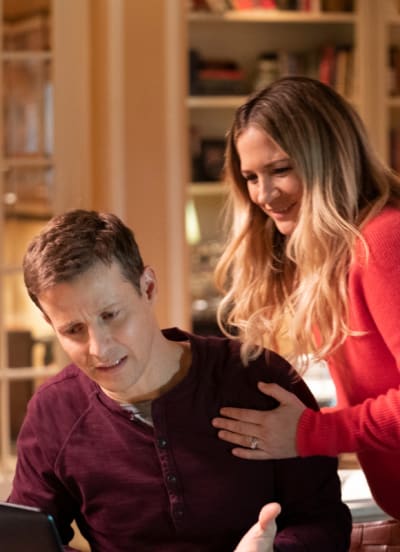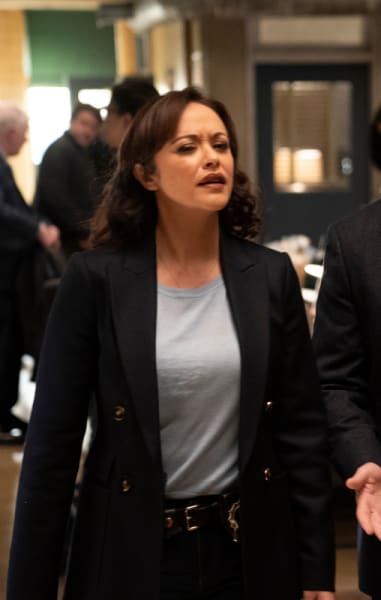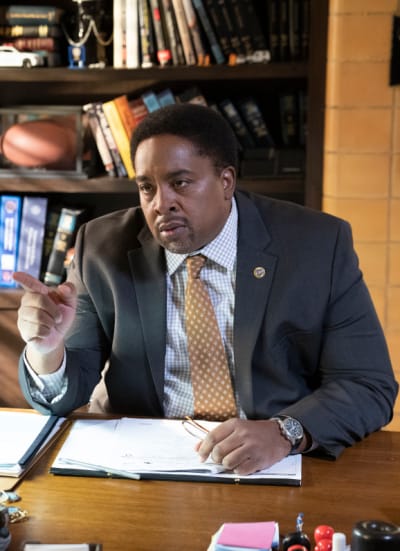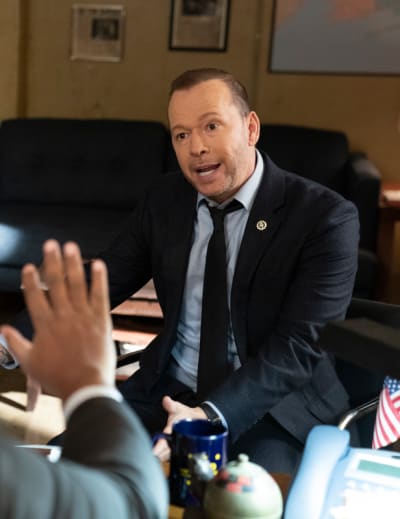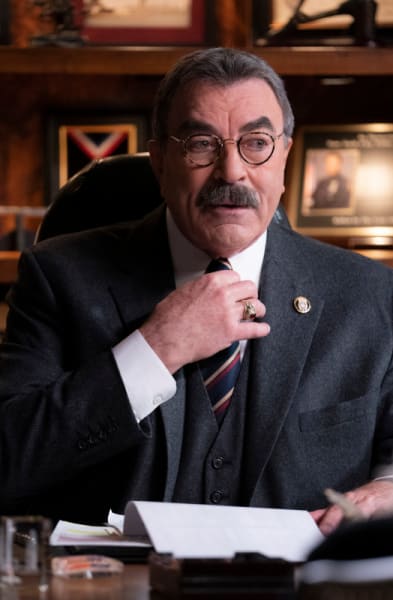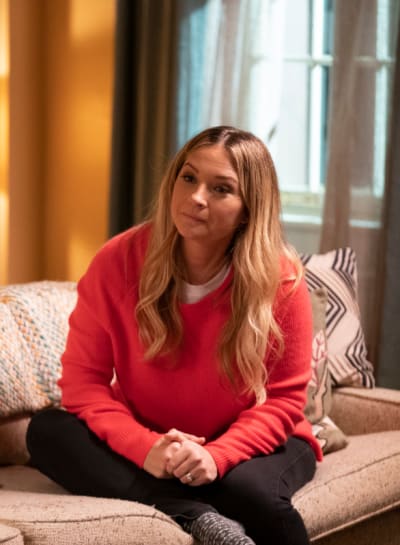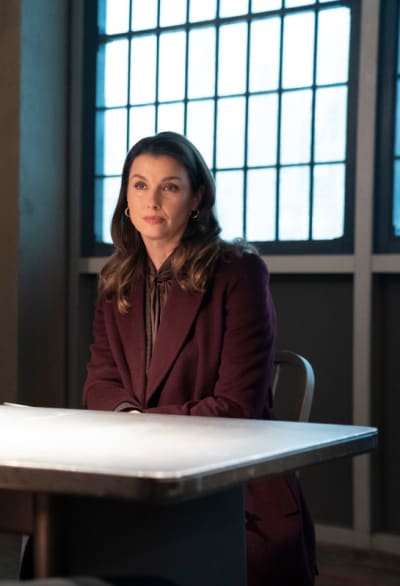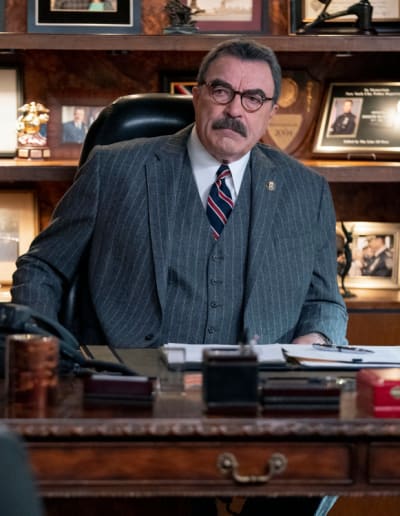Who would have thought that Danny would get in trouble for NOT being a hothead?
Usually, he’s the kind that gets in perps’ faces and straddles the line between acceptable behavior and police brutality.
But in a testimony to how times are changing, on Blue Bloods Season 11 Episode 6, Danny found himself in the hot seat when he chose NOT to shoot at a perp with a gun.
The IAB case against Danny seemed absurd.
Wendell: How could you let him go? I heard you were a cop’s cop but I guess I heard wrong.
Danny: No, you haven’t. We’ve got his address so we’ll get him. But not for nothing, you escalated the situation when you drew your weapon.
Wendell: He assaulted me and stole my weapon. And you let him go. That’s what happened.
Officer Wendell filed a complaint because he was angry that Danny thought that whether or not a perp presented an immediate threat was as important as whether he attacked a cop. Because of that complaint, IAB was in the unenviable position of questioning Danny about ulterior motives for NOT shooting.
IAB probed to find out whether Danny was afraid of being attacked by bystanders, whether he was trying to avoid the hassle of being investigated for a clean shoot, and whether he failed to do his job so that he wouldn’t be accused of excessive force.
Surely the IAB officers realized how silly that all sounded.
While asking all those inane questions, IAB managed never to bring up the obvious elephant in the room.
Pratt was Black. Danny was white. If he did choose not to shoot for any reason other than thinking it was unnecessary, it would have been because white cops shooting Black suspects has sparked mass protests and a lot of tension between cops and civilians.
Intentionally or not, IAB’s response to Danny made it seem like they wanted to punish him for NOT being the kind of cop that shoots Black suspects on sight.
That said, there was a middle ground between shooting Pratt and letting him go. Nobody brought this up either, but I didn’t understand why Danny didn’t shoot at Pratt’s tires to stop him from escaping.
In the end, it all worked out. Pratt turned out not to be guilty of murder, turned himself in, and thanked Danny for saving his life.
The additional wrinkle of Danny’s perp being suspected of murder irritated me.
It was unnecessary and irrelevant. Whether or not Pratt murdered someone later had nothing to do with whether he was a threat to Danny’s life at the moment that Danny chose not to shoot him.
But if Pratt had been the murderer, it would have implied that Danny should have seen that coming and shot him even if he was non-threatening during their encounter.
I don’t want a police force that shoots people based on a hunch that they will be violent later. That’s a recipe for disaster.
Danny’s lieutenant shouldn’t want that either.
Danny’s case had interesting parallels with two of the other major storylines.
Like him, Erin was embroiled in a debate over whether a potentially violent person should be allowed temporary freedom. However, Erin was on the other side of this and was trying her damnedest to keep a violent defendant in jail.
Both Erin and the judge had a point. Cash bail requirements do impact poor people’s lives more than wealthy people’s. A person who can’t afford bail is locked up pending the outcome of a criminal case. Even if they are innocent, they could be spending a year or two behind bars.
And since there is a wealth gap between races, in practice, this often means that people of color go to jail pending trial while white people go home. That certainly isn’t justice.
However, the bail reform law seemed to be meant for the 98 percent of people accused of non-violent offenses and not the two percent accused of assault, rape, and murder.
When I worked at an alternative to cash bail program in New York City, people charged with violent crimes were generally not eligible to participate for this exact reason.
I can understand bail reform demanding that prior bad acts not be considered, but it seemed silly that present danger to the community isn’t supposed to be a factor in bail decisions.
It seemed that allowing judges to consider the likelihood of a defendant hurting someone while out on bail would solve the problem.
Non-violent alleged offenders would be released ROR, and violent alleged offenders would be held pending trial. This would help the jail system work the way it’s supposed to — to protect the public from those who are dangerous rather than those who are casualties of the War on Drugs — and help resolve the inequity the judge referred to.
That’s why I have mixed feelings about Erin’s reaction to this.
On the one hand, Crawford was right that Erin disobeyed direct orders and could have hurt the department’s reputation, opened them up to a harassment lawsuit, or otherwise caused trouble by trailing the defendant to see if he committed a crime.
But Maloney WAS violent and DID try to violate the temporary restraining order and attack his ex-girlfriend. That didn’t seem to matter to Crawford, who was focused solely on Erin’s role in getting him re-arrested.
What if Maloney had killed his ex-girlfriend? That would have put the entire bail reform program at risk, caused a massive outcry, and left the judge and defense attorney in need of convincing people that they didn’t do something horrible by letting this guy go.
Crawford needed to take that into account, and I think her perceived rivalry with Erin got in the way.
Finally, Jamie’s department got a social worker riding along!
As an MSW myself, I was thrilled with this storyline, though there were some flaws in it.
I was surprised that Claire had no practical experience with working with police before her ride-along.
When I was in social work school, I worked in the courts, but some of my classmates worked directly with the NYPD or at Rikers’ Island. So I thought that if Claire wanted to go into this field, she likely would have had an internship in this area before she graduated.
But the bigger issue, at least for me, was Jamie’s attitude.
Jamie dismissed the program as “woke” nonsense that would cause problems in the department. But when the kid with mental illness grabbed Claire, I remembered that Jamie used to be especially skilled at EDP cases.
Before becoming a sergeant, Jamie was often trying to stop his superiors from shooting at perps with mental illness while he tried to talk them down.
He was upset to find out that a lack of resources made it harder for people with emotional and mental health issues to get help and frustrated that so many of his fellow cops shot at these people instead of trying to deal with them.
So this type of program seemed to be exactly what he was advocating for back in the day, and it didn’t make sense that he had become so conservative that he didn’t believe in it.
Finally, I never realized how much Frank looks like Teddy Roosevelt until he was staring at that portrait.
That wasn’t the point of his story, but the similarity cracked me up.
Frank: This last year has been like life in wartime. For this department. For the city we serve. And you abandoned your duties to your fort in the Bronx.
Butler: With all due respect, I don’t have to take this.
Frank: I’d double check that Chappequa offer.
Butler: They called you?
Frank: I called them.
Butler: You gonna destroy my career, sir?
Frank: You did that yourself. Dismissed.
I liked Frank being hard on Captain Butler. The guy wanted to blame everything from anti-cop sentiment to lack of senior officers for his precinct’s poor performance, and that’s not a good trait in a leader.
Butler was becoming a liability, and the Bronx is hardly a place that needs the scandal of cops sitting around doing nothing while crime rates rise.
But I wish Frank would have left it at forcing Butler to face the consequences for his non-action. He didn’t deserve that job in Westchester because he wasn’t leading his current team effectively.
Instead, Frank went off on a tangent about how New York City desperately needs cops right now, so therefore he wants to make it impossible for anyone to seek greener pastures.
That’s not good leadership either; It will make some cops resent him and had nothing to do with why he did what he did to Butler.
Your turn, Blue Bloods fanatics.
What did you think? Hit that big, blue SHOW COMMENTS button and let us know.
Want to refresh your memory first? Just watch Blue Bloods online right here on TV Fanatic!
Jack Ori is a senior staff writer for TV Fanatic. His debut young adult novel, Reinventing Hannah, is available on Amazon. Follow him on Twitter.
